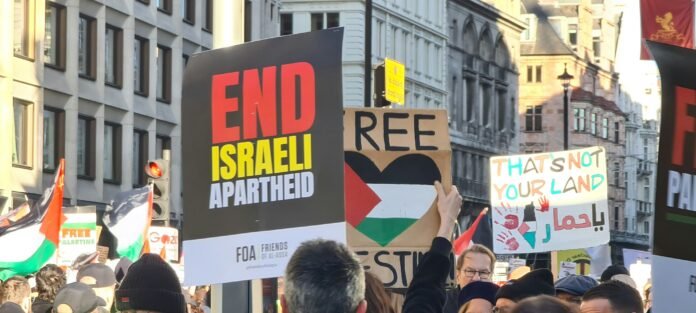Introduction to the UN’s Position on Israeli Settlements
The United Nations Secretary-General plays a critical role in articulating the organization’s position on various international issues, including the contentious matter of Israeli settlements in the occupied West Bank. As a custodian of international law, the Secretary-General’s statements carry significant weight, serving to guide global discourse and influence diplomatic actions. The official stance of the UN regarding Israeli settlements is that they are deemed illegal under international law, particularly in reference to the Fourth Geneva Convention. This legal framework prohibits the transfer of an occupying power’s civilian population into the territory it occupies, which is a scenario that accurately describes the current situation in the West Bank.
The expansion of Israeli settlements not only raises legal concerns but also poses substantial implications for the Israeli-Palestinian peace process. Settlements encroach on land that would form a potential Palestinian state, thereby complicating negotiations by altering the facts on the ground. These developments directly impact the two-state solution, a framework widely supported by the international community as a viable path to achieving lasting peace in the region. The UN consistently emphasizes that a just and lasting peace can only be achieved through mutual recognition of rights and adherence to international norms.
Details of the Higher Planning Committee’s Decision
Recently, the Israeli Higher Planning Committee made a significant decision to approve the construction of over 3,400 housing units in the E1 area of the occupied West Bank. The E1 zone is strategically located between East Jerusalem and Ma’ale Adumim, a large Israeli settlement. This geographic significance raises serious concerns regarding the potential alteration of borders and the impact it may have on contiguous Palestinian territories, effectively fragmenting the West Bank. E1 has long been a focal point in discussions around Israeli settlement policy, often viewed as a critical area in any future negotiations concerning the Israeli-Palestinian conflict.
The historical context surrounding settlement expansions in the West Bank is marked by numerous decisions aimed at establishing Israeli presence in these territories. Since the 1967 Six-Day War, successive Israeli governments have promoted settlement policies, asserting claims to land that Palestinians envision as part of their future state. The expansion in E1 is not an isolated decision but rather part of a broader trend that has seen an increase in settler populations and construction throughout the West Bank. Settlements are often justified under various legal and historical claims by Israel, contrasting sharply with the view of most international bodies, which regard them as a violation of international law.
The implications of the Higher Planning Committee’s recent approval are multifaceted. Firstly, the increase in housing units within E1 further complicates the already fraught relationship between Israel and Palestine. This expansion could lead to increased tensions on the ground, as Palestinians may view it as encroachment on their land and rights. Furthermore, it raises questions about the viability of a two-state solution, as the construction could severely hinder the contiguity of Palestinian territories, complicating any future peace negotiations. The decision signifies a pivotal moment that might have lasting effects on the dynamics within the region.
The Legal Framework Surrounding Settlement Activity
The issue of Israeli settlements in the West Bank is a complex matter intertwined with international law and various resolutions that guide the legal landscape surrounding such activities. A central tenet of international law, particularly as articulated in the Fourth Geneva Convention, is the prohibition against an occupying power transferring its own civilian population into the territory it occupies. This principle is pivotal when assessing the legality of Israeli settlements, which are considered by many as a breach of these regulations.
Moreover, the United Nations has consistently addressed the legality of settlement expansion through numerous resolutions. Notably, UN Security Council Resolution 242, adopted following the Six-Day War in 1967, emphasizes the inadmissibility of the acquisition of territory by war. Subsequent resolutions, especially Resolution settlements, have reiterated the need for Israel to cease all settlement activities, highlighting that such actions are regarded as a violation of international law.
Additionally, the International Court of Justice (ICJ) provided further guidance on this matter in its advisory opinion in 2004 concerning the legality of the construction of a wall in the occupied Palestinian territory. The ICJ concluded that the establishment of settlements in the West Bank contravenes international law. This opinion reinforces the understanding that these settlements are not merely political provocations but represent significant legal violations that perpetuate the Israeli-Palestinian conflict.
Beyond the legal frameworks provided by international law and UN resolutions, the discourse surrounding the legitimacy of Israeli settlements is marked by ongoing debate. Proponents argue that settlements are vital for security and demographic considerations, while opponents assert that they obstruct the peace process and violate the rights of the Palestinian people. This multifaceted legal landscape contributes to the persistent tensions and complexities in resolving the conflict.
Call to Action: The Future of the Peace Process
The expansion of Israeli settlements in the West Bank presents a significant challenge to the ongoing peace efforts between Israelis and Palestinians. The recent statements by the UN Secretary-General underscore the urgency of this situation, highlighting the detrimental impact that such expansion may have on the viability of a two-state solution—long considered the cornerstone for achieving lasting peace in the region. As settlements grow, the fragmentation of Palestinian territories intensifies, rendering the prospect of an independent and viable Palestinian state increasingly elusive.
The UN Secretary-General has called upon the Israeli government to halt settlement expansion and re-engage in meaningful negotiations with Palestinian leadership. Compliance with international law is a crucial element in this appeal, emphasizing that adherence to established legal frameworks is not only a matter of obligation but also vital for fostering an atmosphere conducive to dialogue and reconciliation. The continued encroachment of settlements poses a serious risk to the two-state solution, as it further complicates territorial contiguity and undermines the trust necessary for any peace process.
Pathways forward require a commitment from both Israeli and Palestinian leaders to prioritize dialogue over division. The international community, including key stakeholders, must play a proactive role in mediating discussions and ensuring that all parties adhere to international norms and resolutions. Encouraging a return to multilateral negotiations could revitalize the peace process, allowing both sides to address critical issues such as borders, security, and the status of Jerusalem. Only by fostering mutual respect and understanding can there be hope for a future that honors the aspirations of both Israelis and Palestinians.
The recent expansion of settlements highlights an urgent call to action for all involved. The future of the peace process hinges on the decisions made today regarding settlement policies and the commitment to dialogue, emphasizing the critical need for a concerted effort to ensure stability and peace in the region.


